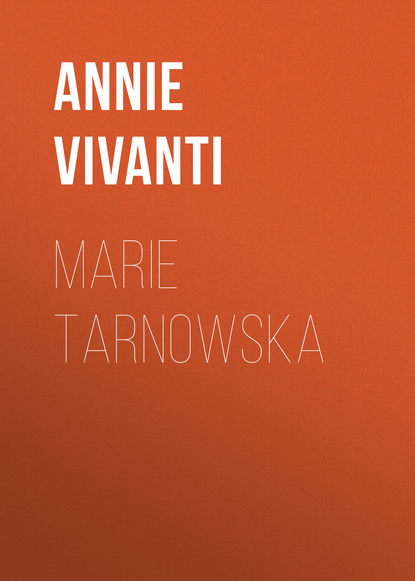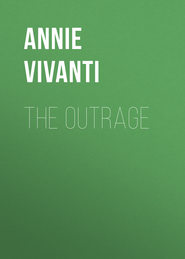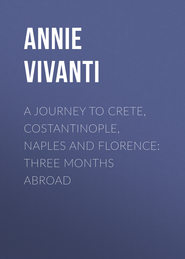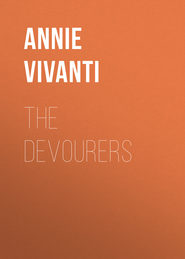По всем вопросам обращайтесь на: info@litportal.ru
(©) 2003-2024.
✖
Marie Tarnowska
Настройки чтения
Размер шрифта
Высота строк
Поля
Bozevsky liked to find me reading. He would arrive in the evening—usually after Vassili had gone out, alone or with friends—and enter the drawing-room with bright and cheerful greeting. He always smiled when he found me with one of his books in my hand, sitting beside Aunt Sonia placidly knitting in her armchair.
“I like your thoughts to be far away from here,” he would say, kissing my hand. “I like to know that your soul is far from the frivolous society you live in, far from the petty preoccupations, the compliments and the flattery which surround you. Let me read with you; let me join you in the purer realm of fancy, far away from the world.” And he would sit down beside me, with an air of protecting fraternal affection.
One evening he found me nervous and agitated.
“What has happened?” he asked.
“I have been reading a ghastly book,” I told him with a shudder. “The story of a mysterious plant, a sort of huge octopus that feeds on human flesh—”
“Ugh!” laughed Bozevsky, “how gruesome!” and he bent his sunny head over the page.
“Just imagine,” I continued, “its branches are long moving tentacles, its thick leaves are quite black and hard; they glitter and move like living scorpions....”
“Horrid, horrid,” said Bozevsky with his shining smile as he took the book out of my hand. “Forget the scorpions. To-night I shall read you some Italian poetry. I want you to make friends with Carducci.”
He opened a plainly bound volume at random, and read to me.
“Oh favolosi prati d'Eliseo…”
I forgot the tree of scorpions. I forgot Bozevsky. I forgot Aunt Sonia and the world. The unknown poet had wrapped my spirit in his giant wings and was bearing me far away.
It was about this time that Vassili took me to Moscow. There, one evening, our friends the Maximoffs brought a stranger to see us. They introduced him as an estimable Moscow lawyer of high repute. I was surrounded by other friends and I greeted him absently, without hearing his name. I remember casually noticing that he was neither young nor old, neither ugly nor handsome. His wife, a timid, fair-haired woman, was with him.
At Vassili's suggestion we all went to the “Strelna,” a famous night-restaurant. I remember that there was a great deal of laughter at the grotesque jokes which Vassili and Maximoff and also the estimable lawyer played on the pretty dark-faced tziganes.
I noticed that the lawyer's wife did not laugh. She passed her hand across her wistful Madonna-like brow, and listened only to the music.
Like her I felt out of tune with the merriment around me. My thoughts wandered back to the silent drawing-room at Kieff: I thought of Aunt Sonia and her peaceful knitting, of Bozevsky and the books he had brought me. I seemed to hear his voice saying, “Ugh! a tree of scorpions”—and at that very instant something cold and claw-like clutched my bare shoulder. I uttered a piercing shriek, which seemed to turn every one—including myself—cold with terror. But it was only the estimable lawyer, who, having drunk rather too much, had playfully climbed upon the sofa behind me and, to save himself from falling off, had laid his hand upon my shoulder.
“What on earth has happened?” exclaimed Vassili. “What made you scream like that?”
“I don't know,” I stammered, taken aback, “I thought—I thought it was a scorpion!”
Every one laughed and for the rest of the evening the lawyer was nicknamed “the Scorpion.” Perhaps this name added to the unreasoning fear I felt of him, or perhaps I was merely nervous, but he seemed to be always close behind me, and during the whole of that evening I kept on turning round, with little shivers running down my spine, to see what he was doing.
Suddenly he had disappeared. Vassili laughed loudly. “Hullo! Where's the Scorpion?” And amidst the laughter of the guests he set himself to count the flippant tziganes one by one to see if any were missing. But they were all there—and I was glad for the sake of the Scorpion's poor little Madonna-wife.
It was three in the morning when we went back to our sleighs. It was very cold; the clear deep-blue sky was powdered with stars. Assisted by Maximoff I was about to step into the sleigh, when, with another cry, I drew back; my foot had touched something soft and shapeless that was lying huddled up beneath the rug.
“What is the matter now?” cried Vassili. “Another scorpion?”
No, it was the same one. It was the estimable lawyer very drunk and fast asleep at the bottom of the sleigh.
On our way back to the hotel, driving through the keen night air, I asked Vassili:
“Who was that man?”
“What man?” said Vassili, who sat opposite to us and was pressing the small feet of Maximoff's wife.
“You know—the man who frightened me.”
“Oh, the Scorpion?” laughed Vassili. “That was Donat Prilukoff.”
When we returned to Kieff I told Bozevsky the adventure of our evening at the Strelna, and described the Scorpion to him with as much humor as I could. But Bozevsky did not laugh. My absence had embittered and exasperated him. He no longer sat beside me with an air of protective fraternal affection. He would not speak of literature or poetry any more. He spent entire evenings making mute scenes of jealousy and despair, while dear Aunt Sonia, instinctively feeling the atmosphere around her charged with electricity, dropped many stitches in her knitting and became sour and irritable.
“My child, this must not go on any longer. Either Alexis Bozevsky must be forbidden the house or we ourselves must go away. I cannot understand how Vassili—” Her honest cheeks kindled with indignation. “Enough. I shall speak to him about it myself.”
She did so: and Vassili, with his usual brief comment that we all bored him to death, expressed the hope that wild beasts might devour Bozevsky, and ordered us to pack up and leave for the country at once.
XII
So we all left for the country—to the great delight of Aunt Sonia and the children.
Let my mind linger for an instant on those springtide days—the last for me, though I did not know it, of unalloyed serenity. The children and I used to rise at dawn and go into the vast garden all a-shimmer with dew. On the glittering lawn, among the flower-beds, down the shady avenues of the park the two little elfin figures flitted before me, calling to me, eluding me, darting to and fro like twin will-o'-the-wisps; then turned and ran towards me with wind-light steps and gilt locks afloat, to shelter in my outstretched arms. Oh! my children, my little boy and girl, when you remember your mother I pray that God may lead your memories back to those clear morning hours, and may the rest be blotted out and dark.
Vassili was inexpressibly bored with rural solitude and sought new means of diversion. His latest fad was target-shooting. He filled the house with rifles and revolvers and invited every one in the neighboring country houses to take part in shooting matches in our grounds. From morning to night, in the garden, in the courtyard, even from the windows of the house, there was a ceaseless crackling of firearms.
One afternoon when the house was filled with guests, Dr. Stahl and Bozevsky arrived in their troika from the neighboring castle of the Grigorievskys, where they had been staying. To my astonishment, Vassili received them jubilantly and embraced them both. He had quite forgotten the reasons which had led to our departure from Kieff.
Bozevsky came to greet me at once, and for the rest of the day never left my side. He enveloped me in a whirlwind of ecstatic tenderness. His infatuation, which he sought neither to conceal nor to control, disquieted me deeply.
I noticed that his friend Dr. Stahl watched us continually. I had not seen the doctor for many months, and he struck me as strangely altered. His very light eyes, in which the pupils were contracted until they seemed mere pin-points, followed me continuously.
“Doctor,” I said to him, “what strange eyes you have! Just like the eyes of a cat when it looks at the sun!”
“I do not look at the sun,” he answered slowly, speaking with great stress. “I look into an abyss, the abyss of annihilation and oblivion. Some day, if ever you are irremediably unhappy, come to me and I will open to you, also, the doors of my unearthly paradise—of this chasm of deadly joy which engulfs me.”
“Shame on you, Stahl! How dare you suggest such a thing!” exclaimed Bozevsky, casting a look almost of hatred upon the morphinomaniac. “Why must you and your kind always seek to drag others down into your own gehenna?”
Stahl sighed. “It is terrible, I know. But it is a characteristic of our malady.”
I listened without comprehending. I did not then know of Stahl's enslavement to the drug. “What are you speaking of? What malady? I do not understand.”
“It is better not to understand,” murmured Bozevsky with knitted brows. “Stahl is distraught; he is ill. Pay no attention to him. And never follow either his advice nor his example. But pray,” he added, “do not worry your head over anything we have said; the shooting match will soon begin. I think your husband is looking for you.”
But Vassili was far from troubling himself about me. He was rushing to and fro setting up rows of bottles that were to serve as targets, and distributing guns and cartridges to all our guests. Then he hurried towards us. “There,” he said to Dr. Stahl and to Bozevsky, giving them each a Flobert rifle, “these are for you.”
“And what about the Countess?” asked Stahl in his hollow voice. “Is she not going to compete in the shooting?”
“Oh, no!” I exclaimed. “I am much too frightened.”
“Nonsense!” cried Vassili, pushing a gun into my unwilling hands. “Of course you must shoot with the rest. And I warn you that if you are not brave I shall play William Tell with an apple on your head!” He passed on laughing, with Madame Grigorievskaja armed with a Browning by his side.
I was not at all brave; I held the rifle at arm's length, trembling with fear lest it should explode by itself. Stahl was amused by my terror, while Bozevsky sought to encourage and comfort me.
“Poor timid birdling,” he murmured, “do not be frightened. See, I will teach you. It is done like this”—and he lifted the gun to my shoulder, placed my hands in position, and with his glowing face quite close to mine, showed me how I was to take aim. What with my terror of the gun and the fragrance of his fair hair near my cheek I felt quite dizzy.
“There, that's it. Now press the trigger.”








